World Children's Day: Connecting every School to Internet and every young person to ICT- Recognizing the Leadership
CMAI Association of India
Session 110
Along with 18th CMAI ICT & Education Leadership Awards 2022
The Importance of Internet Connectivity and How it Can Help Save the World’s Children
There are around a billion children in the world who do not have internet access. This is not something to be taken lightly. There are many reasons why the global connectivity rate is extremely low including lack of infrastructure, no access to electricity, and lack of education about how to maintain a connection.
More so, there are a number of studies that show how increased internet access can have a great impact on global development. It leads to better education opportunities and more economic opportunities. Economic development leads to more financing for projects such as these meaning that we steadily move towards eradicating extreme poverty altogether.
This session will be attended by eminent personalities in education and leaders from ICTs & social arena.
CMAI Association of India celebrates education initiatives taken up by companies & schools in India by recognizing their excellent work. We seek to recognize the companies that have positively impacted both business and society by taking a strategic approach. There are many companies & schools in India which contribute uniquely to sustainable development by delivering economic, social, and environmental benefits for all stakeholders and citizens of India.
This is the first of its kind and will be attended by eminent Personalities in Education Arena and Leaders from ICT & Social Arena. Earlier Edition's of Leadership Summit & Awards was a huge success and was attended by eminent personalities from across the Globe. We are very thankful to everyone for their support and good wishes.
FLOW OF THE EVENT:
• Opening Keynote by the dignitaries
• Address by the Chief Guest
• Felicitation
Representatives from NIELIT, NIXI, several officials from the Government of India, and other Corporate Affairs, Telecom & IT Associations of India will be participating in this event, which will be extensively covered by the media. The Summit will also be attended by many CSR Experts, PSU's, Private Ltd. Companies, Public Limited Companies, and Schools from all over the Country. We will also be inviting NGOs to attend the summit for their valuable inputs for the social awareness of various important sorts of education like Sex Education, Cyber Threat Education, Extra Curricular Activities, Potential Soft Skills, and many other shortcomings that are overlooked but important for overall growth and awareness of students.
It is imperative that we keep striving for these goals while also improving our current efforts and spreading awareness about this major social issue. I hope you share my vision and would like to be part of this important goal.
The internet is a vital tool for the 21st century. It has transformed almost every facet of our lives. From how we communicate, how we work, to how we entertain ourselves, the internet has become a basic necessity in today’s world. In many ways, it is the most powerful communication tool that humanity has ever created.
Internet access is not just about convenience or entertainment anymore. It is now a necessary component of economic development and social progress in the 21st century. For example, children are becoming more educated because they have access to information on the internet that they would otherwise never have had access to.
According to a report by UNICEF, over half of the world’s population lives in places where there is no regular internet connection. The report also showed that only 1 out of 3 children in these rural areas have access to computers.
This lack of internet connectivity is linked to the high inequality levels and low educational opportunities found in these areas. With the help of digital technology, internet connectivity can provide opportunities for learning as well as better educational outcomes for children.
With access to the internet, children can explore the wonders of connectivity, learn how to use digital devices, and become confident in using them for other tasks that can help them in life with their education, health, and social skills. The world has become increasingly connected to the internet. It is now impossible to escape the wide-reaching web that has entangled us all. In a time of turmoil, it’s important to find ways to help others without leaving the safety and convenience of your home. One way you can do this is by offering some of your bandwidth so that others can connect to the internet when they need it most.
When internet connectivity is restricted, many people are limited in their access to life-saving services and resources like information on health, cures for diseases, or clean water. This can have devastating effects on a population’s development. Children in developing countries are especially vulnerable as they often rely on their parents for their developmental needs.
CMAI Association of India is the apex premier and foremost non-profit trade promotion organization based in India with 54 MOU partners spread across the globe and 48,500 members. CMAI is a prominent trade association promoting growth in education, communications, and manufacturing trade sector through Legislative and Regulatory Advocacy, Research, Exhibitions, Trade shows, Conferences and Seminars, Technology events, Buyers-Sellers Meets B2B meetings promotion, and fostering business and strategic relationships.
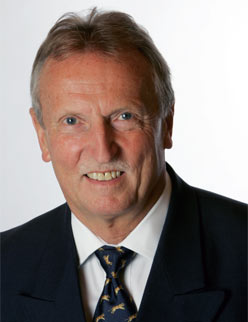
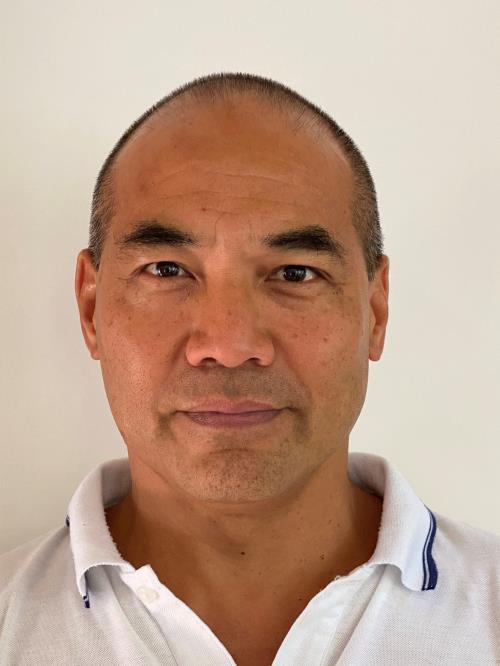
Alex has over 30 years professional experience in a series of leadership roles that has consistently focused on building partnerships to address the world's biggest development challenges. Since 2019, Alex has been serving as Chief, Special Initiatives, in the Telecommunications Development Bureau (BDT) at the International Telecommunication Union (ITU), the United Nations specialized agency for information and communication technologies. In this role, he oversees special BDT-wide programs and projects including Giga (co-led with UNICEF with an aim to connect every school to the internet), Connect2Recover (ensuring countries have robust and resilient ICT infrastructure to support recovery from the Covid-10 and other crises), I-CoDI (the ITU International Center for Digital Innovation), and Partnership2Connect (a global coalition to mobilze actions and commitments to achieve universal meaningful connectivity and national digital transformation).
Prior to joining the ITU, Alex worked in both the private and not-for-profit sectors. From 2018-2019, he served as President of CG/LA Infrastructure, a US based company that promotes and develops infrastructure projects around the world. From 2000 to 2018, Alex was a member of the Executive Committee at the World Economic Forum, an international organization for public private cooperation with a mission to improve the state of the world, where he held several leadership roles including the development and rollout of the Forum’s Global System Initiatives; heading the ICT, Media & Entertainment, Basics, and Infrastructure industry teams and related projects; and heading the Center for Global Industries Geneva. From 1988-2000, Alex worked in a variety of professional roles at Accenture as a Strategy Consultant, General Motors as a Quality Control Engineer, and the US National Parks Service.
He is a licensed Professional Engineer with a degree in Mechanical Engineering from the University of Toronto and a Masters in Public Administration from Harvard University.
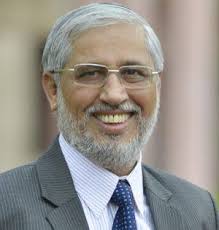
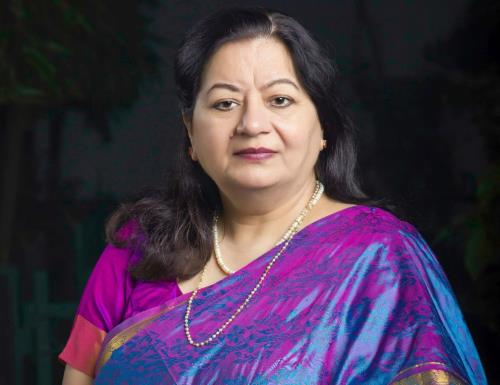
Acclaimed as a leading Educational Administrator and Institution Builder, Professor Najma Akhtar is the first woman Vice Chancellor of Jamia Millia Islamia (JMI) in over hundred years of its existence. JMI figures among top six Universities of India and was recently accredited with the coveted grade A++ by NACC, the credit for which goes to Professor Akhtar’s participative and proactive leadership. Famed for bringing transformation in delivery of Quality Education and Experiential Learning in sync with the evolving pedagogy, technology and innovation, Professor Akhtar has initiated measures for the realization of the objectives of National Education Policy (NEP)-2020 to bring about far-reaching reforms in both School and Higher Education system. She is all set to implement the NEP-2020.

Professor Karbhari Vishwanath Kale, Senior Professor of Computer Science and Information Technology is presently working as Vice-Chancellor of Dr. Babasaheb Ambedkar Technological University, Lonere, District –Raigad, MS. He worked as Director, Board of College and University Development (BCUD) of Dr. B.A.M.U., Aurangabad, MS. He was Head of the Department of Computer Science and IT at University for more than 9 years. He also served as Director of University Network & Information Center (UNIC) of Dr. BAMU, Aurangabad. He served as coordinator of Monitoring and evaluating committee of Avishkar research program organized by Governor of Maharashtra. He is a pioneer of Multimodal Biometrics and Remote Sensing Data Analysis in the region and has established & developed state-of-art Multimodal Biometrics Research Laboratory (MBRL) as a unique Laboratory of International standard. He has also established research laboratories of Geospatial Technology, Big Data Analytics, Artificial Intelligence, Machine Learning and Pattern Recognition Technology. He has more than 32 years of experience in research, innovation and teaching at UG, PG and PhD level. He has published more than 364 National and International research articles, 06 books and 27 book chapters. His area of research includes Geospatial Technology, Remote Sensing and GIS, Image Processing, Pattern Recognition, Computer Vision, Software Engineering, Artificial Intelligence, Neural Network, Big Data Analytic, Internet of Things (IoT) etc.
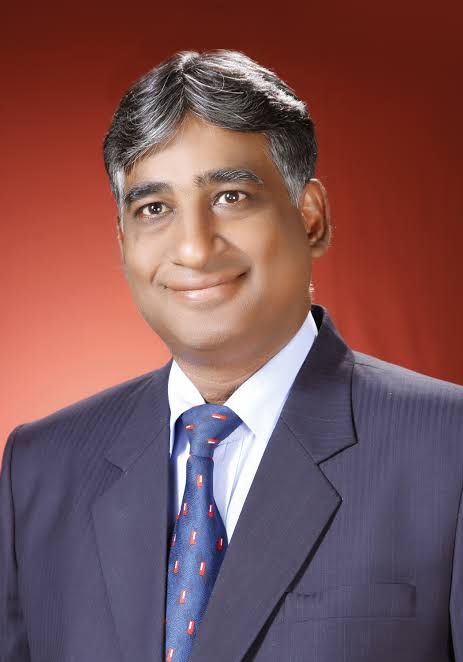
Prof. S. K. Singh is the Vice Chancellor of Rajasthan Technical University, Kota. He is a visionary academician and a reputed scholar who has made significant contributions in the field of science and engineering. He has been engaged in teaching, research, administration and consultancy for the last 34 years. He was selected as Professor in Delhi Technological University, Delhi (Formerly Delhi College of Engineering, an institute of Govt. of N.C.T. of Delhi, established in 1942) through Union Public Service Commission (UPSC) at the young age of 35 years. He has obtained his PhD from BITS, Pilani, M. Tech. from IIT-BHU, Varanasi and B.E. from Gorakhpur University with first division and distinction throughout.
Prof. Singh has served on panels of many prestigious boards. He has been a member of the “Panel of Judges” to evaluate the performance of integrated steel plants in India for awarding the Prime Minister’s Trophy and the Steel Minister’s Trophy. His research has been recognised in the form of two patents - one from the Federal Republic of Germany and another from India. For his distinguished services, Prof. Singh has been honoured by many felicitations and awards by national and international professional bodies, like Hiyoshi Environment Award, Japan; APJ Abdul Kalam Memorial Award; Rashtriya Shiksha Gaurav Puraskar; International Felicitation and WEC-IIEE-IAEWP Environmental Award; Bharat Vikas Award and
Rashtriya Samman Puraskar.

Prof Ambarish S. Vidyarthi involved with the planning and execution of a number of research and teaching programs in biotechnology and bioprocess engineering for the past 2 decades has took over the office of Vice-Chancellor, Bikaner Technical University, Bikaner on May 04, 2021. Previous to his current assignment he served as the Director of two government engineering colleges; Nanhi Pari Seemant Engineering Institute, Pithoragarh, an institute established by the Government of Uttarakhand in 2011 and Institute of Engineering & Technology, Lucknow, established by the Government of Uttar Pradesh in 1985. Prof Vidyarthi, in his credit, the youngest Professor who had created the world-class research and teaching infrastructure at Birla Institute of Technology Mesra, Ranchi while serving the institution from 2003 to 2014.
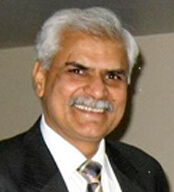.jpg?maxwidth=500)

Dr. Manpreet Singh Manna has come with more than two decades of glorious and versatile experience in the spheres of Research, Education, and Administration. Presently working as the Associate Professor SLIET Longowal (Deemed University, Est. by Govt. of India), India, all while he carries on in the pursuit of his personal engineering education research projects as well as handling National & International assignments in the field of Education.
His prime areas of interest being Smart Grid, Renewable Energy Sources, Electric Vehicles and Electrical Machinery. He has significant contributions through various approaches such as directly supervising Ph.D. students, having acquired a grand total of 20 patents, 6 of which has been granted and 14 are published, as well as publishing over 152 publications of research and review papers published in International and National Journals/Conferences viz. IEEE, IASTED, ACEEE, IEE,
IET etc. He delivered more than 500 Expert/invited talks throughout country and outside India on the area of MOOCs, Curriculum Development, Accreditation, Energy Management, Data Science, AI etc. Also on board as a member for National and International bodies, Fellow, ISQEM-International Safety Quality Environment Management Association ISQEM, UK, Senior Member, IETIInternational Engineering and Technology Institute, Hong Kong Senior Member IEEE, Chair- IEEE
Delhi Section Photonics Society Chapter-Rajasthan, EXECOM member Prakash Bharati(consortium of IEEE Photonics Society Chapters of India), International Advisory Panel for IIMT, Life Member of the International Association of Engineers, Indian Institute of Technical Education, Fellow Institute of Engineers, India and many more. Recently, as Senior MemberIEEE, he has organized different webinars across different Institutes of India, mainly in the states of Punjab and Haryana, Himachal. He has been invited as Guest of Honor and Keynote Speaker at various prestigious conferences, FDPs and webinars.
.jpg?maxwidth=500)
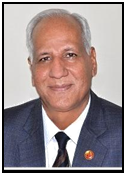
.jpeg?maxwidth=500)
I am a telecom professional with over 27 years of experience. I have served in Government of India as Indian Telecom Services officer of 1993 batch, for 20 years in various leadership roles across BSNL, MTNL, DOT, Ministry of Housing and Urban Affairs. I then moved to corporate world, as CTO of Indus Towers Limited formerly known as Bharti Infratel Limited and served in this position for 7 years.
I am qualified as Electronics and Telecommunication Engineer, MBA in Public Policy and Management, Diploma Holder in Cyber Law, International Mediator and empanelled as Independent Board Member.
I also run Sangati Foundation, a charitable trust which works for all forms of disabilities and has pan India presence. I also dabble in poetry in Hindi, Urdu and English and my collections have been published in four different books.
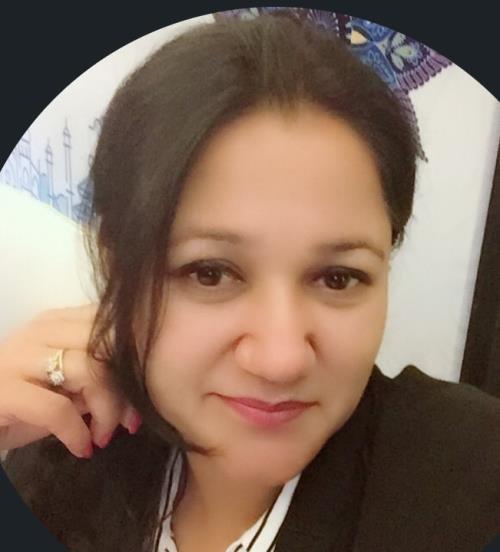
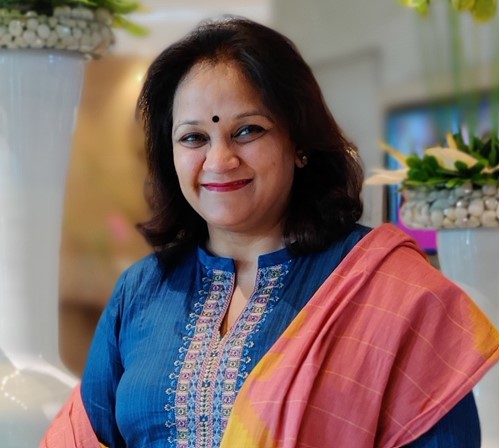
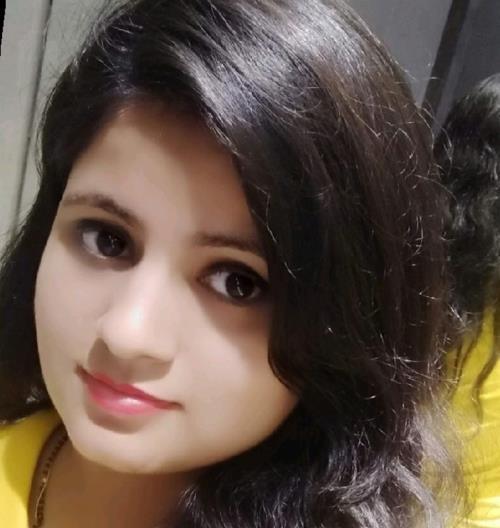
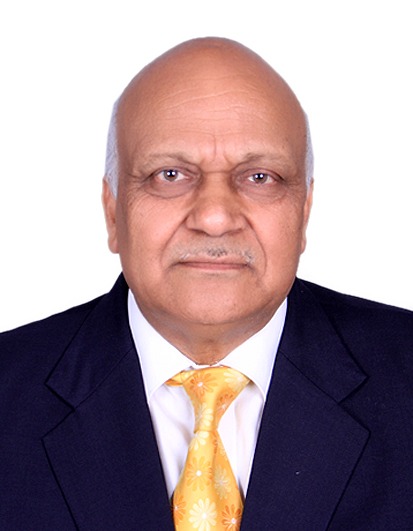
-
 C1. The role of governments and all stakeholders in the promotion of ICTs for development
C1. The role of governments and all stakeholders in the promotion of ICTs for development
-
 C4. Capacity building
C4. Capacity building
-
 C7. ICT applications: benefits in all aspects of life — E-government
C7. ICT applications: benefits in all aspects of life — E-government
-
 C7. ICT applications: benefits in all aspects of life — E-learning
C7. ICT applications: benefits in all aspects of life — E-learning
-
 C7. ICT applications: benefits in all aspects of life — E-employment
C7. ICT applications: benefits in all aspects of life — E-employment
-
 C10. Ethical dimensions of the Information Society
C10. Ethical dimensions of the Information Society
-
 C11. International and regional cooperation
C11. International and regional cooperation
Covid 19 has made realized the world that we have to find new options for development and achieving SDG Goals. The focus is now on line, virtual. The Conference will discuss strategies for achieving WSIS action lines in the background of Covid and focus on digital technologies.
-
 Goal 4: Ensure inclusive and equitable quality education and promote lifelong learning opportunities for all
Goal 4: Ensure inclusive and equitable quality education and promote lifelong learning opportunities for all
-
 Goal 8: Promote inclusive and sustainable economic growth, employment and decent work for all
Goal 8: Promote inclusive and sustainable economic growth, employment and decent work for all
-
 Goal 9: Build resilient infrastructure, promote sustainable industrialization and foster innovation
Goal 9: Build resilient infrastructure, promote sustainable industrialization and foster innovation
SDG 4 is to ensure inclusive and equitable quality education and promote lifelong learning opportunities for all.
Teachers are the key to achieving all of the SDG 4 targets. It requires urgent attention, with a more immediate deadline, because the equity gap in education is exacerbated by the shortage and uneven distribution of professionally trained teachers, especially in disadvantaged areas. As teachers are a fundamental condition for guaranteeing quality education, teachers and educators should be empowered, adequately recruited and remunerated, motivated, professionally qualified, and supported within well-resourced, efficient and effectively governed systems.
SDG 9 with Industry, innovation and infrastructure To help achieve SDG Goals, we have a new technology jargon coming up every few months, AI, block chain, 5G, 6G, Big data.
Yes, Technological progress is key to finding lasting solutions to both economic and environmental challenges, such as providing new jobs and promoting energy efficiency. Promoting sustainable industries, and investing in scientific research and innovation, are all important ways to facilitate sustainable development.
More than 4 billion people still do not have access to the Internet, and 90 percent are from the developing world. Bridging this digital divide is crucial to ensure equal access to information and knowledge, as well as foster innovation and entrepreneurship.
Need also to address issue of affordability of access terminal, network availability at good speed.
Education so far is widely physical and now changing to online. So we have challenged on both side technology and education.
www.cmai.asia
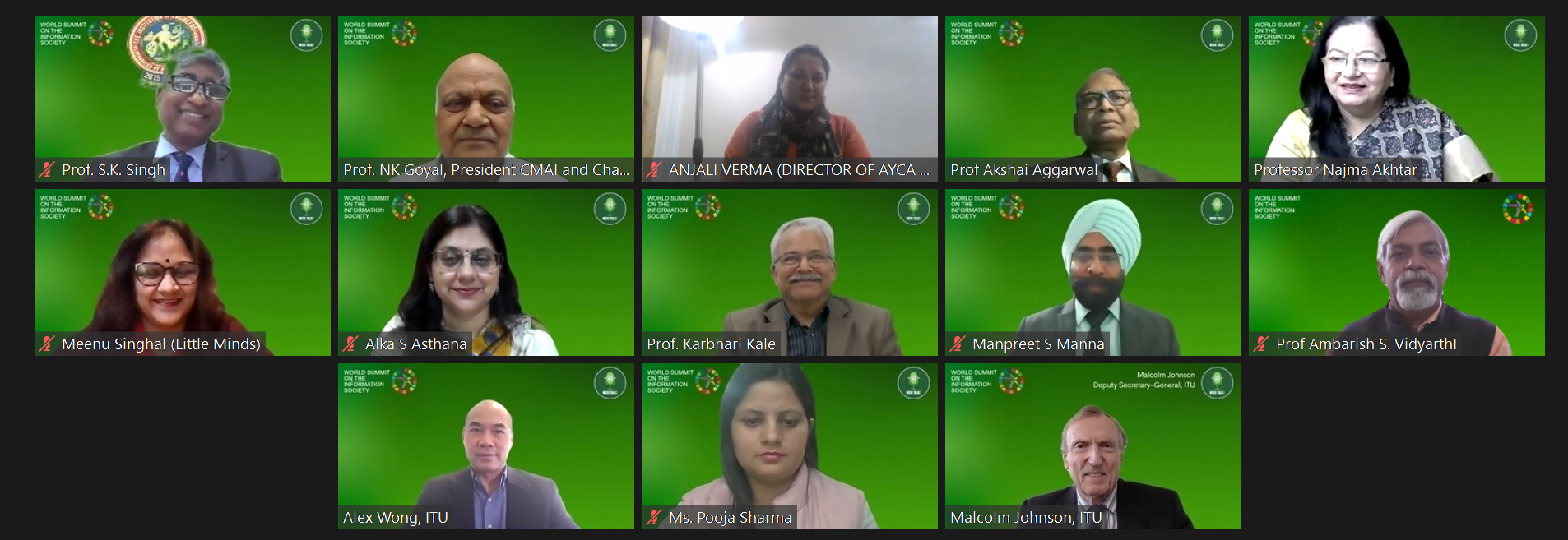
.png?maxwidth=2160)
.png?maxwidth=2160)